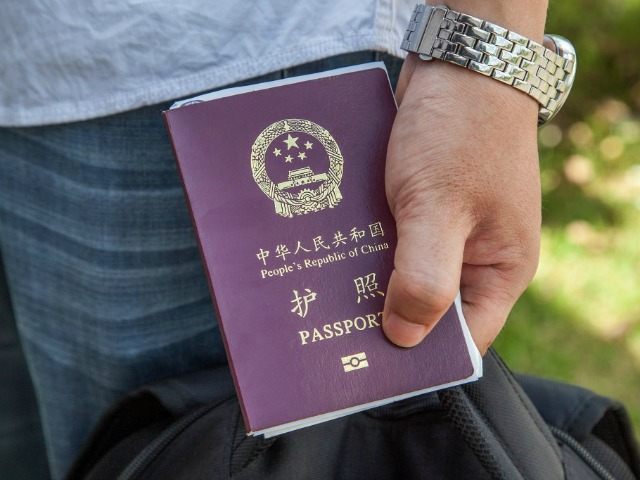Secretary of State Mike Pompeo announced visa restrictions Monday for “officials of the Chinese Communist Party and People’s Republic of China believed to be responsible for, or complicit in, the repression of members of ethnic minority groups, religious practitioners, and human rights defenders.”
“China’s authoritarian rulers impose draconian restrictions on the Chinese people’s freedoms of expression, religion or belief, association, and the right to peaceful assembly. The United States has been clear that perpetrators of human rights abuses like these are not welcome in our country,” Pompeo said in his official statement on the action.
“This action demonstrates the U.S. government’s resolve to hold the Chinese Communist Party (CCP) accountable for its increasing repression against the Chinese people,” Pompeo continued. “This year, the United States has imposed visa restrictions and financial sanctions on CCP officials involved in the horrific abuses taking place in Xinjiang, restrictions on access to Tibet, and the destruction of Hong Kong’s promised autonomy. Today’s action creates additional restrictions applicable to all CCP officials engaged in such repressive activities, no matter their location.”
“The United States stands with the many individuals persecuted for their peaceful efforts to exercise their rights — lawyers such as Xu Zhiyong, house church pastors such as Wang Yi, civil society activists such as Huang Qi,” he continued, “Uyghur academics such as Ilham Tohti, democracy advocates like Jimmy Lai, and Tibetan linguists and businesspeople such as Tashi Wangchuk.”
“We call for their immediate release and urge CCP authorities to respect the human rights and fundamental freedoms to which the people of China are entitled under the Universal Declaration of Human Rights,” he concluded.
Voice of America News (VOA) noted the State Department previously tightened visa restrictions for members of the Chinese Communist Party, “allowing only one-month single-entry visas where 10-year multiple-entry visas were previously allowed.”
The State Department also advised American citizens to “reconsider travel” to China, including Hong Kong, because “they could be subject to exit bans and arbitrary detentions by China’s government without due process of law.”
Homeland Security Secretary Chad Wolf said Monday that further restrictions on China could be announced in the last month of the Trump administration, including more visa restrictions and an expanded ban of products made in China with forced labor — possibly including the return of a ban on all cotton and tomatoes from Xinjiang that was considered but rejected this year.
Wolf added his department would soon issue a formal advisory against using Chinese data services, and even certain Chinese-made smart TVs that could include software “backdoors” that expose their owners to “cyber breaches and data exfiltration.”
The Chinese Foreign Ministry angrily denounced the expanded visa restrictions Tuesday, railing against the United States for “abusing state power.”
“Over the past four years, the United States, led by Pompeo, has been weaponizing its visa policy to impose various visa sanctions on Chinese individuals citing so-called issues related to Hong Kong, Xinjiang, Tibet, religion and human rights. It severely interferes in China’s internal affairs, impedes regular people-to-people exchange and undercuts China-U.S. relations. China firmly rejects and strongly condemns it,” said Foreign Ministry spokesman Wang Wenbin.
Wang said China would continue imposing “reciprocal sanctions on U.S. personnel who shoulder major responsibilities towards interfering in China’s domestic affairs, harming Chinese interests, and undermining China-U.S. relations as well as their families.”
“We urge the United States to correct its mistakes and withdraw the visa sanctions against Chinese individuals. Depending on the U.S. moves, we will continue taking legitimate and necessary measures to safeguard our interests,” he threatened.

COMMENTS
Please let us know if you're having issues with commenting.